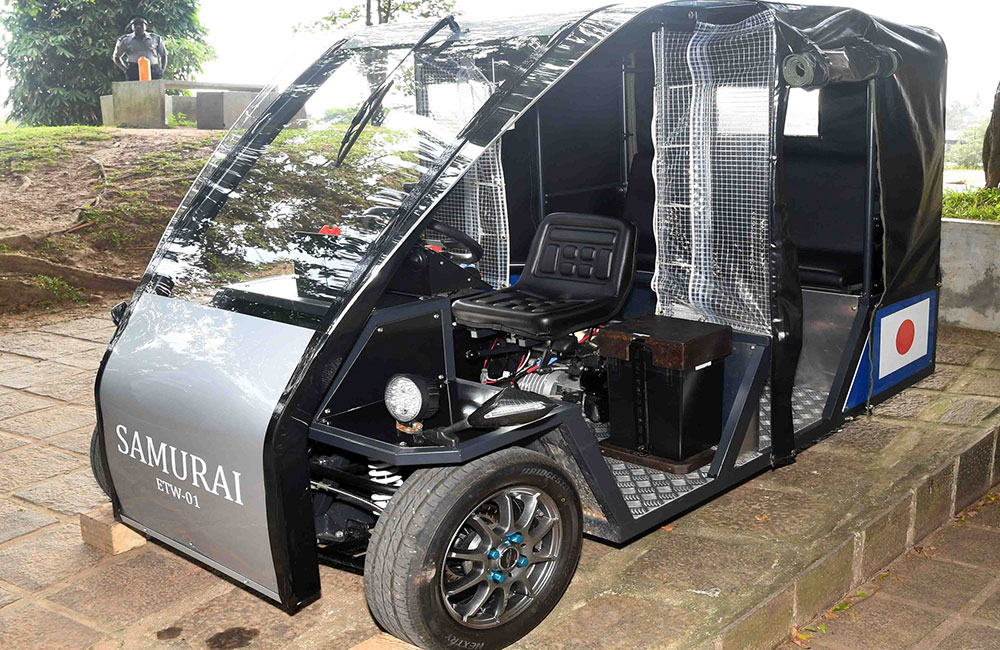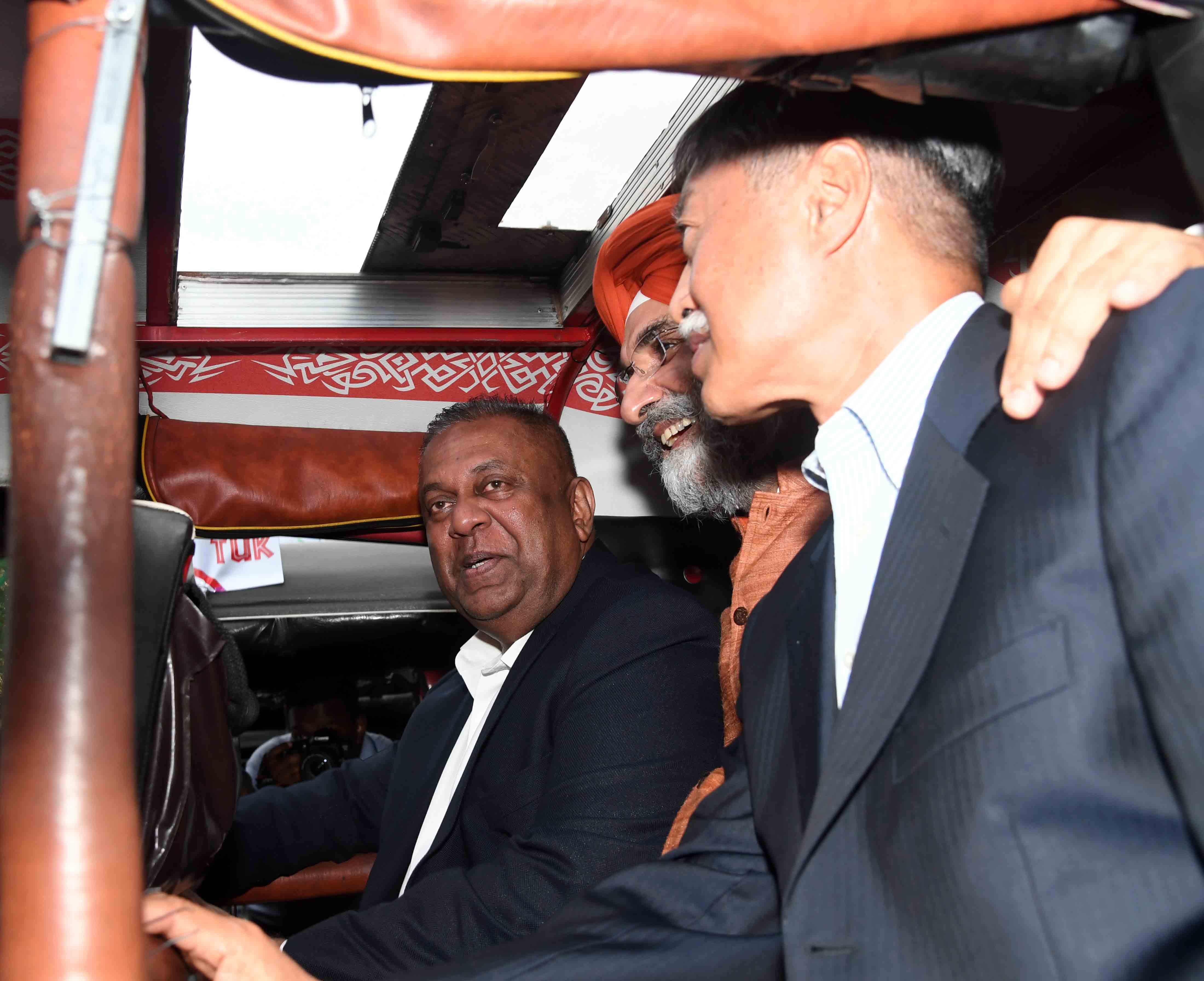Sri Lanka plans to manufacture electric three wheelers by 2020, Finance and Media Minister Mangala Samaraweera said.
With more than 1 million three-wheeler drivers in Sri Lanka, Samaraweera said that the three-wheeler industry is indeed a major sector of the country and has become something of an icon as it is used in myriad aspects.
"It is an affordable means of transport for small business, providing last mile connectivity for SMEs and entrepreneurs. Three wheelers are a means of affordable private transportation as well, and is increasingly popular in the tourism industry," he said.
Samaraweera made these remarks at the launch of the 'Dialogue on Introducing Electric Three Wheelers' developed by the Japan Sri Lanka Comprehensive Partnership Secretariat and T-PLAN.
Finance and Media Minister Mangala Samaraweera and Japanese Ambassador to Sri Lanka Kenichi Suganauma hitch a ride in an electric tuk tuk.
Samaraweera said that the government has recognised the importance of this sector to the economy and intends to further empower those involved in the industry.
"In the 2018 budget, we conceived the ‘tourist friendly tuk-tuk’ concept in collaboration with the hospitality industry. This programme provides for existing three-wheeler drivers to register with the SLTDA so that a three-wheeler would not only be a mode of transportation, but the driver to serve as a local tourist-guide as well. This policy was initiated to create a win-win situation for all stakeholders involved and improve the quality of services provided in the tourism industry. I am pleased to announce that the implementation is progressing well and thus far 589 drivers have undergone training," he added.
Furthermore, under the Enterprise Sri Lanka credit schemes, the Ministry of Finance will incorporate a subsidised loan scheme to enable three-wheeler drivers to invest in a multitude of additional services including meters, WIFI, GPS facilities, that would act as value-added services that are already provided to consumers; both domestic and tourists.
"We are also developing a proposal to encourage entrepreneurship amongst the spouses of three wheeler drivers," he added.
The number of three-wheelers in Sri Lanka has increased eight-fold since the year 2000. The fuel consumption per person has increased from 90 litres to 150 litres during the same time. In 2017, Sri Lanka spent nearly USD 3.5 B to import fossil fuels for the generation of electricity and transportation. This is equivalent to around 4% of GDP.
"Therefore, Sri Lanka needs a longer term sustainable solution to mitigate the negative environmental consequences that arise as well as a solution to minimise the forex outflows from the country. As a result, the vehicle policy in the 2018 budget too was designed to incentivise to move to a greener fleet of vehicles. The excise tax is structured such that diesel and petrol vehicles are taxed at a higher rate, making hybrids and electric vehicles more attractive, " Samaraweera said.
The Minister also noted that through such policies and projects, the Government of Sri Lanka will not only show continued commitment to the empowerment of the three-wheeler industry, but also to achieving long term economic growth through sustainable development.
Comments
- No comments found


Leave your comments
Login to post a comment
Post comment as a guest